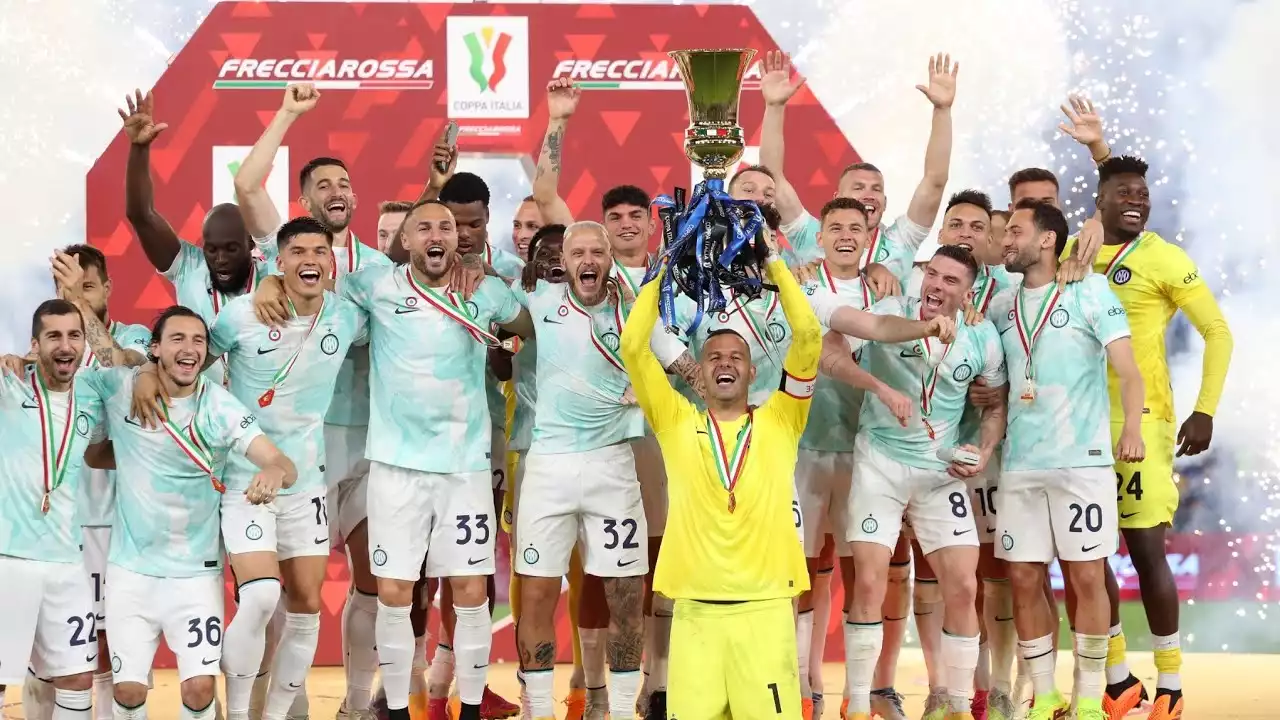The Rise of Foreign Ownership in Serie A
Foreign ownership has become increasingly prevalent in Serie A, with clubs welcoming investors from all corners of the globe. This trend can be attributed to the growing popularity and global appeal of Italian football, as well as the potential for significant financial returns. In recent years, we have witnessed a surge in the number of teams under foreign ownership, which has had a profound impact on the landscape of Italian football.
The influx of foreign owners has brought new perspectives, fresh ideas, and substantial financial resources to Serie A clubs. These owners often come from diverse backgrounds, ranging from wealthy businessmen to international conglomerates. Their investment has breathed new life into Italian football, elevating the level of competition and attracting world-class talent to the league.
However, this rise in foreign ownership has not been without controversies. Some argue that it has led to the commercialization and commodification of the sport, with clubs becoming more profit-driven and less focused on the traditional values and principles of Italian football. Nevertheless, the impact of foreign ownership on team success cannot be denied, especially when it comes to prestigious tournaments like Coppa Italia.
The Impact of Foreign Ownership on Team Success in Coppa Italia
Coppa Italia, the premier knockout cup competition in Italian football, provides an intriguing platform to assess the influence of foreign ownership on team success. The introduction of foreign owners has undoubtedly reshaped the dynamics of this tournament, presenting both opportunities and challenges for participating clubs.
One of the most significant advantages of foreign ownership is the injection of substantial financial resources into a club. These owners bring with them deep pockets and a willingness to invest heavily in their teams. The influx of funds allows clubs to attract top-class players, enhance their training facilities, and implement cutting-edge technologies. As a result, teams under foreign ownership often enjoy a competitive edge over their rivals, increasing their chances of success in Coppa Italia.
However, the impact of foreign ownership is not always positive. The introduction of new management styles and decision-making approaches can create conflicts within the team and hinder its progress. The focus on short-term results and immediate success might neglect the importance of long-term development, potentially leading to a lack of sustainable achievements in Coppa Italia and other competitions.
Case Studies of Successful Teams Under Foreign Ownership in Coppa Italia
To better understand the impact of foreign ownership on team success in Coppa Italia, let's examine some case studies of clubs that have thrived under the stewardship of foreign owners.
One notable example is AC Milan, which has experienced significant success in Coppa Italia since its acquisition by Chinese investment group Rossoneri Sport Investment Lux. The injection of funds allowed the club to attract high-profile players such as Leonardo Bonucci and André Silva, bolstering their chances of success in the tournament. AC Milan's victory in the 2016-2017 Coppa Italia season stands as a testament to the positive influence of foreign ownership.
Similarly, Inter Milan, under the ownership of Chinese conglomerate Suning Holdings Group, has seen a resurgence in recent years. The financial backing provided by Suning has enabled Inter Milan to invest in top-quality players like Romelu Lukaku and Achraf Hakimi, revitalizing the team's chances in Coppa Italia. Their victory in the 2020-2021 season further solidifies the impact of foreign ownership on team success.
These case studies demonstrate that foreign ownership can indeed be a catalyst for team success in Coppa Italia. The financial advantages and strategic investments made by foreign owners can transform a club's fortunes and elevate its performance in the tournament.
The Financial Advantages of Foreign Ownership in Coppa Italia
One of the most significant advantages of foreign ownership in Coppa Italia is the infusion of substantial financial resources into a club. These owners often bring with them considerable wealth and investment capabilities, which can have a transformative impact on the team's success.
With increased financial backing, clubs can attract top-class players and bolster their squad depth, providing them with a competitive advantage in Coppa Italia. The ability to invest in world-class talent allows teams to assemble a formidable lineup capable of challenging for the trophy. In addition to player recruitment, foreign ownership also enables clubs to enhance their training facilities, medical support, and overall infrastructure, all of which contribute to improved performance in the tournament.
Furthermore, foreign owners often have extensive networks and connections in the football industry, which can open up new avenues for sponsorship deals and commercial partnerships. These additional revenue streams further strengthen a club's financial position, allowing them to invest in their team and increase their chances of success in Coppa Italia.
The Challenges Faced by Teams Under Foreign Ownership in Coppa Italia
While foreign ownership brings numerous benefits, it also presents unique challenges for teams participating in Coppa Italia. The introduction of new management styles and decision-making approaches can disrupt the existing team dynamics and create conflicts within the squad.
Foreign owners may have different expectations and priorities than those traditionally associated with Italian football. Their focus on short-term results and immediate success might neglect the importance of long-term development and sustainability. This short-sighted approach can hinder a club's progress in Coppa Italia, as the tournament requires a well-rounded and cohesive team capable of performing consistently over multiple matches.
Additionally, cultural differences and communication barriers can pose challenges for teams under foreign ownership. Language barriers and unfamiliarity with Italian football traditions can create misunderstandings and hinder effective communication between players, coaching staff, and management. These challenges can impede a team's ability to perform at its best in Coppa Italia, where effective teamwork and coordination are paramount.
The Role of Transfers and Recruitment Under Foreign Ownership in Coppa Italia
Transfers and recruitment play a crucial role in team success in Coppa Italia, particularly under the ownership of foreign investors. The financial backing provided by these owners allows clubs to be more competitive in the transfer market, attracting top-class players and building a squad capable of challenging for the trophy.
Foreign owners often have an extensive network of contacts within the football industry, enabling them to identify and secure talented players from around the world. The ability to recruit internationally renowned players gives clubs a significant advantage in Coppa Italia, where the level of competition is high.
However, it is essential to strike a balance between short-term acquisitions and long-term planning. While foreign ownership can facilitate big-name signings, it is equally important to invest in developing young talents and nurturing a strong academy system. This approach ensures sustainable success in Coppa Italia, as it allows clubs to build a strong foundation for the future while remaining competitive in the present.
The Controversy Surrounding Foreign Ownership in Italian Football
Foreign ownership in Italian football has not been without controversy. Critics argue that it has led to the commercialization and commodification of the sport, with clubs becoming more profit-driven and less focused on the traditional values and principles of Italian football.
There are concerns that foreign owners may prioritize short-term success over long-term development, leading to a lack of sustainability in team achievements. Additionally, the influence of foreign ownership on club decision-making and governance has raised questions about the integrity and transparency of Italian football.
However, proponents of foreign ownership argue that it brings much-needed investment and global exposure to Serie A and Coppa Italia. The financial resources and strategic investments made by foreign owners have elevated the level of competition and attracted world-class talent to the league. Furthermore, increased competition and international investments have the potential to drive the overall growth and development of Italian football.
The Future of Foreign Ownership in Coppa Italia
The future of foreign ownership in Coppa Italia remains uncertain, as it is ultimately shaped by various factors, including regulatory frameworks, economic conditions, and the evolving nature of Italian football. While foreign ownership has undeniably had a significant impact on team success in the tournament, there are ongoing discussions and debates surrounding its long-term implications.
It is crucial for regulatory bodies and club owners to strike a balance between the financial advantages and potential challenges associated with foreign ownership. Establishing clear guidelines and regulations can help ensure that teams under foreign ownership are held accountable while still benefiting from the investments and expertise brought by their owners.
Ultimately, the success of foreign ownership in Coppa Italia will depend on the ability to combine financial backing, strategic planning, and a commitment to the traditional values of Italian football. By harnessing these elements, clubs under foreign ownership can strive for sustainable success in the tournament while preserving the integrity and essence of Italian football.
Balancing the Benefits and Challenges of Foreign Ownership in Team Success in Coppa Italia
Foreign ownership has undeniably transformed the landscape of Italian football, including its impact on team success in Coppa Italia. The financial advantages and strategic investments made by foreign owners have elevated the level of competition and attracted top-class talent to the tournament. However, these benefits come with their fair share of challenges, including potential conflicts, short-term focus, and communication barriers.
To strike a balance between the benefits and challenges of foreign ownership, it is crucial for clubs to prioritize long-term development while remaining competitive in the present. By investing in a strong academy system, nurturing young talents, and fostering effective teamwork, clubs can achieve sustainable success in Coppa Italia under foreign ownership.
Furthermore, regulatory bodies should establish transparent and accountable frameworks to ensure the integrity and fairness of Italian football. This includes monitoring financial transactions, enforcing regulations, and promoting a level playing field for all teams, regardless of ownership.
Foreign ownership has reshaped the dynamics of team success in Coppa Italia. While it brings financial advantages and global exposure, it also presents unique challenges that must be navigated carefully. By striking a balance between short-term goals and long-term development, clubs under foreign ownership can thrive in the tournament while preserving the essence of Italian football. As the future unfolds, it will be fascinating to see how foreign ownership continues to shape the destiny of clubs in Coppa Italia.










